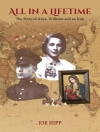In ‘Four Faultless Felons, ‘ G.K. Chesterton intricately weaves a tapestry of moral quandaries through the lens of four remarkable characters, each implicated in crimes that paradoxically reveal their noble virtues. This collection of tales, written in Chesterton’s characteristically witty and paradoxical style, offers a unique exploration of justice and morality, challenging the reader to reconsider the nature of crime and virtue. Set against the background of early 20th-century society, the narratives delve into philosophical discussions of righteousness and fallibility, reflecting Chesterton’s keen understanding of human nature and societal constructs. G.K. Chesterton, a luminary of English literature, was a prolific writer, philosopher, and social critic whose works often engaged with the moral and social issues of his time. His own experiences with faith, politics, and the complexities of human intention deeply informed his writing. With a penchant for wit and an appreciation for the absurd, Chesterton’s storytelling exemplifies his belief that the fantastical often illuminates deeper truths about existence and morality. ‘Four Faultless Felons’ is not just a collection of short stories; it is an invitation to reconsider what it means to be virtuous in an imperfect world. Readers interested in philosophical literature, moral dilemmas, and the richness of human character will find this work invaluable. Chesterton’s masterful storytelling and profound insights make this a must-read for anyone seeking to engage with the complexities of ethics and human behavior.
Об авторе
Gilbert Keith Chesterton (1874–1936) was an English writer, philosopher, and critic famed for his prodigious output and literary versatility. His writing spans across various genres including philosophy, poetry, journalism, biography, Christian apologetics, fantasy, and detective fiction, showcasing his multifaceted talent and keen perception. In the area of detective literature, Chesterton is best known for creating the priest-detective character Father Brown in a series of stories. He often employed paradox and satire, revealing profound truths about human nature and society. His style was characterized by a playful wit and a penchant for making startling connections between seemingly disparate ideas, which he deftly used to critique contemporary culture and mores. Among his notable works is ‘The Man Who Was Thursday: A Nightmare’, an allegorical tale that combines intrigue with philosophy, and ‘Orthodoxy’, his seminal spiritual autobiography where he lays out the intellectual underpinnings of his Christian faith. Another significant book, ‘Four Faultless Felons’, exemplifies his skill as a storyteller and his ability to weave complex narratives with moral overtones. Chesterton’s influence extends beyond literature; he has been aptly described as the ‘prince of paradox’ for his ability to use apparent contradictions in his arguments. His work continues to be broadly read and analyzed, contributing to the fields of literature, theology, and philosophy.












